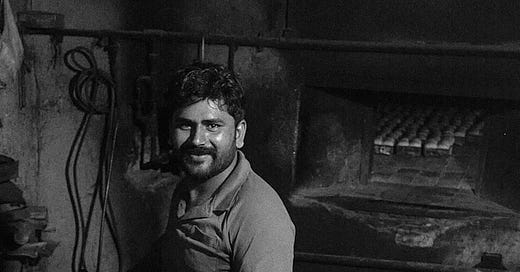
In the heart of Old Karachi, where the streets are narrow and history lingers in the air, a small bakery comes to life before the city even stirs. Ranchor Lines, a neighborhood known for its bustling markets and timeless traditions, wakes up to the scent of fresh Pao—the humble bread that fuels countless households. And behind this simple, everyday comfort is one man who never fails to show up.
Every morning, between 4 AM and 7 AM, while the rest of the city sleeps, he is at work. His hands move with practiced ease, kneading dough, shaping rolls, and sliding trays into the roaring oven. The dim glow of the fire flickers against the soot-stained walls, the warmth radiating through the small space. His focus is unwavering—this is his craft, his duty, and his way of serving his people.
By the time the first signs of daylight creep through Karachi’s skyline, the market outside is already coming alive. Vendors set up their stalls, rickshaws weave through the tight streets, and the air fills with a symphony of calls—fruit sellers, chai vendors, fishmongers, all adding to the city's unfiltered energy. In the midst of it all, the Pao-wala finishes his shift. His bread, stacked in trays, is ready for the rush—hot, soft, and comforting.
Pao, a staple across Karachi, is more than just bread. It’s what accompanies the morning chai at roadside dhabas, the spicy gravies in local eateries, the late-night snacks in busy homes. It’s the silent backbone of meals that bring families together. And yet, few stop to think about the hands that make it, the dedication behind it, the quiet labor that begins before dawn so the city never goes without.
As the morning unfolds and Karachi picks up its relentless pace, he steps back, his work done. He won’t be celebrated, but his presence is felt in every home that breaks into a warm, pillowy Pao. And tomorrow, like every day before, he will do it all over again—before the sun rises, before the world takes notice.




